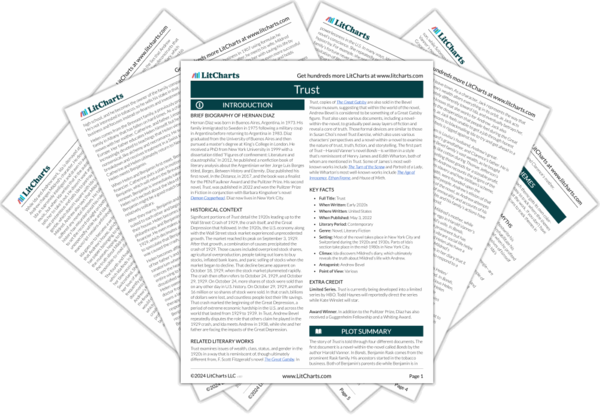Again, Andrew sees the entire world through the lens of business. According to him, business is an outgrowth of Darwinian ideas of survival and, by extension, natural selection. With that in mind, Andrew again propounds a worldview in which he, by virtue of his wealth, is superior to everyone else. That worldview seems to be close to “social Darwinism,” a pseudoscientific idea embraced by the Nazis, among others, to justify racism and eugenics.
